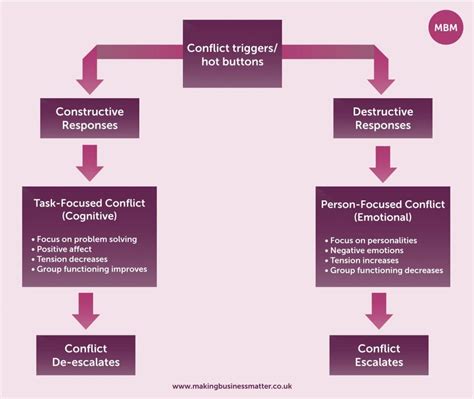What Are Conflict Resolution Skills?

Conflict is a natural part of human interaction. It can arise in various settings, from personal relationships to the workplace. Conflict resolution skills are essential to help individuals and groups manage conflicts effectively. These skills enable people to resolve disputes peacefully and collaboratively, without having to resort to aggression or violence. In this article, we will explore the different conflict resolution skills and how they can be applied in different situations.
Why Are Conflict Resolution Skills Important?
Conflict resolution skills are important for several reasons, including:
- Reducing stress and tension
- Improving communication
- Building stronger relationships
- Preventing escalation of conflicts
- Facilitating teamwork and collaboration
- Increasing productivity and efficiency
The Different Types of Conflict Resolution Skills
There are several types of conflict resolution skills, including:
1. Communication Skills
Effective communication is essential in conflict resolution. Good communication skills involve active listening, expressing oneself clearly and assertively, and using non-violent language. It also involves being able to understand the other person’s perspective and being able to express empathy and understanding.
2. Negotiation Skills
Negotiation skills involve finding a mutually acceptable solution to a conflict. This involves identifying common ground, exploring different options, and compromising where necessary. Negotiation skills also involve being able to manage emotions, stay focused on the issues at hand, and be creative in finding solutions.
3. Mediation Skills
Mediation involves using a neutral third party to help resolve a conflict. Mediators facilitate communication between the parties involved and help them identify common ground and explore different solutions. Mediation skills involve being able to remain neutral, listen actively, and guide the parties towards a mutually acceptable solution.
4. Problem-Solving Skills
Problem-solving skills involve being able to identify the root causes of a conflict and find solutions that address those causes. This involves gathering information, analyzing the situation, and brainstorming different options. Problem-solving skills also involve being able to evaluate the effectiveness of different solutions and adjust them if necessary.
5. Emotional Intelligence
Emotional intelligence involves being able to manage one’s emotions and recognize and respond to the emotions of others. This is important in conflict resolution because emotions can often escalate conflicts and make them more difficult to resolve. Emotional intelligence involves being able to regulate emotions, express empathy and understanding, and maintain a positive attitude.
FAQs About Conflict Resolution Skills
Q: Can conflict be avoided altogether?
A: Conflict is a natural part of human interaction and cannot be avoided altogether. However, conflict can be managed effectively through the use of conflict resolution skills.
Q: What happens if conflict is not resolved?
A: If conflict is not resolved, it can escalate and become more difficult to manage. This can lead to negative consequences such as damaged relationships, decreased productivity, and even violence.
Q: Can conflict resolution skills be learned?
A: Yes, conflict resolution skills can be learned and developed through training, practice, and experience.
Q: What is the role of empathy in conflict resolution?
A: Empathy plays a crucial role in conflict resolution because it allows individuals to understand the perspectives and emotions of others. By expressing empathy and understanding, individuals can build trust and find mutually acceptable solutions to conflicts.
Conclusion
Conflict resolution skills are essential for managing conflicts effectively and peacefully. By developing these skills, individuals and groups can reduce stress and tension, build stronger relationships, and increase productivity and efficiency. The different types of conflict resolution skills include communication skills, negotiation skills, mediation skills, problem-solving skills, and emotional intelligence. By learning and practicing these skills, individuals can become more effective at managing conflicts and creating positive outcomes.
